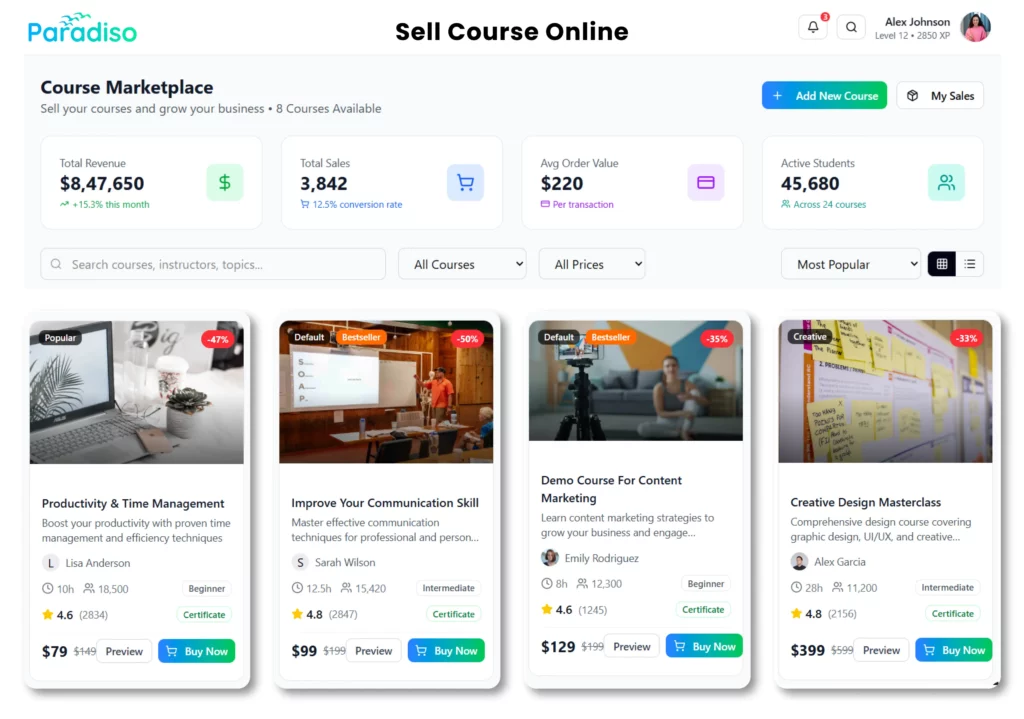Artificial intelligence (AI) is revolutionizing various industries, and corporate training is no exception. AI-powered training, also known as intelligent training, utilizes AI’s capabilities to enhance employees’ learning experiences. we will delve into the concept of AI-powered training, how it works, and the benefits it offers to organizations. We will also address common challenges faced when implementing AI-based training programs and strategies for overcoming them.
AI-powered training uses advanced algorithms and natural language processing to create personalized and adaptive learning experiences. It can analyze an individual’s learning style and preferences, as well as their performance data, to provide tailored content and feedback. This technology also allows for real-time tracking and progress monitoring, enabling trainers to adjust the program as needed.
Benefits of AI-powered training
The implementation of AI-powered training in corporate settings can offer many benefits. Some of the key advantages include the following:
Increased efficiency and cost savings: AI-powered training can lead to greater efficiency and cost savings by automating repetitive tasks, such as grading and providing feedback, and also allow trainers to focus on more high-value activities,
Personalized learning experiences: also training can provide tailored content and feedback, leading to a more engaging and practical learning experience.
Improved performance and retention: With the ability to track progress in real-time, AI-powered training can identify areas where employees need improvement and provide targeted interventions.
Increased scalability: This can handle many learners simultaneously, making it an ideal solution for organizations with a diverse workforce.
Enhanced data analysis:This training can provide valuable insights into employee performance and learning patterns, which can inform decisions related to training and development.
How do AI powered training programs work?
Artificial intelligence (AI) rapidly transforms various industries, including corporate training. AI-powered training, also known as intelligent training, uses advanced algorithms and natural language processing to create personalized and adaptive learning experiences. It offers a wide range of features and functionalities that can enhance the learning experience for employees and improve the efficiency of trainers. Let’s explore some of the advanced features of AI-powered training and how they can benefit organizations.
One of the key capabilities of AI-powered training is advanced data analysis. So it can analyze an individual’s learning style and preferences and performance data to provide tailored content and feedback. It can also track and monitor progress in real-time, enabling trainers to adjust the program as needed. It can provide valuable insights into employee performance and learning patterns, which can inform decisions related to training and development.
Another powerful feature of AI-powered training is personalized course and content recommendations. The system can generate recommendations based on an individual’s learning style, preferences, and performance data. This can lead to a more engaging and effective learning experience.
This training also offers a range of features that can enhance the user experience for learners with disabilities. For example, it can create course descriptions accessible to users with visual impairments or offer virtual assistants and bots to assist users with disabilities.
What is the future of AI in eLearning
The future of AI-powered training programs is promising, as it is expected to see significant growth in the coming years. According to MarketsandMarkets report, the global AI in the e-learning market is projected to grow from $1.31 billion in 2020 to $6.82 billion by 2025, at a CAGR of 39.5% during the forecast period. The increasing adoption of AI technology in various industries and the growing need for personalized and adaptive learning experiences drives this growth.
One of the key trends in the future of AI-powered training programs is the integration of virtual reality (VR) and augmented reality (AR) technology. This can create immersive and interactive learning experiences, leading to increased engagement and retention of information. Additionally, as more and more companies are moving towards remote work, VR and AR technology can also enable virtual collaboration and teamwork.
Another trend is integrating natural language processing (NLP) and machine learning (ML) technology. This will enable AI-powered training programs to understand and respond to user input in natural language, making it more intuitive and user-friendly. Additionally, ML can enable the system to learn and adapt based on user behavior, providing a more personalized and adaptive learning experience.
AI-powered training programs are also expected to play a significant role in addressing the skill gap in the workforce. AI-powered training programs can provide targeted interventions and personalized learning experiences, which can help employees acquire the skills they need.
Moreover, AI-powered training programs can also help in the accessibility of education for people with disabilities. It can provide alternative ways of learning, such as virtual assistants and bots, which can assist users with disabilities.













